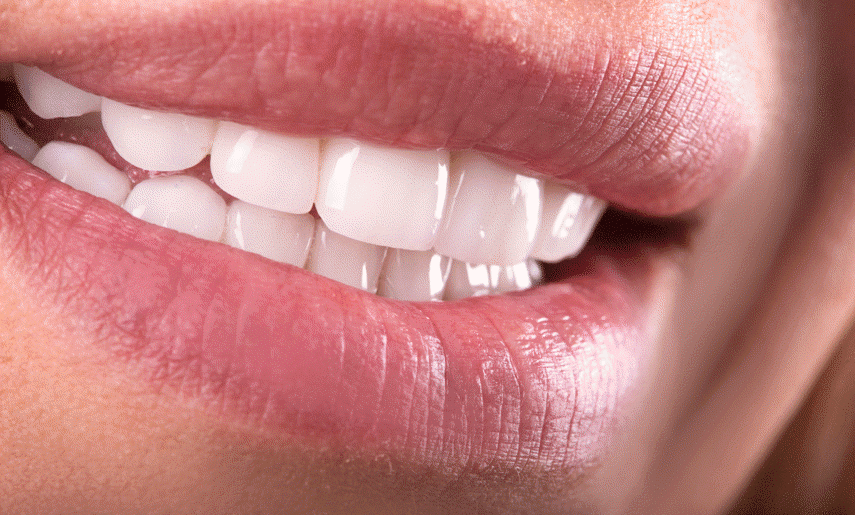Porcelain Veneer Process-Everything You Need to Know
Introduction: What Are Dental Veneers?
How would you like a facelift for your teeth?! Right on! We’re talking about dental veneer treatment.
If you’re looking for a way to get a smile straight out of a magazine cover, dental veneers may be the answer you’ve been searching for.
These thin, custom-made shells are a popular cosmetic dentistry treatment that can help you achieve a natural-looking, symmetrical smile that you’ll be proud to show off.
A General Overview of Porcelain Veneer Treatment
Dental veneers are one of the most popular cosmetic dental procedures that can enhance the appearance of your natural teeth. Teeth veneers are thin, custom-made shells placed over teeth’ front surfaces to improve their shape, size, colour, or overall appearance.
Dental veneers are excellent dental restoration for people who want to achieve a smile makeover and improve the appearance of their front teeth. Teeth veneers can correct a wide range of dental imperfections, including teeth that are stained, discoloured, chipped, cracked, or misaligned.
Dental veneers can enhance the appearance of multiple teeth. They can be applied to any tooth in the visible area of your smile.
Veneer Materials
Porcelain Veneers vs. Composite Veneers: Which is Better?
Teeth veneers are typically made of porcelain or resin composite materials. They are designed to mimic the look and feel of natural tooth enamel and offer you a new smile.
While both types of veneers can be effective cosmetic procedures for a smile makeover, there are some differences between them that you should consider when deciding which one is right for you.

Porcelain Veneer Material
Porcelain teeth veneers are thin, custom-made shells permanently bonded to the front surface of your natural teeth. They are designed to cover up a variety of dental imperfections, such as chips, stains, gaps, and misshapen teeth.
Composite Material
Composite veneers are a type of dental veneer made from a tooth-coloured composite resin material.
Composite Veneer Procedure
The composite veneer process involves placing a thin layer of composite resin material on the tooth’s front surface. The composite resin material is carefully sculpted and shaped to achieve the desired size, shape, and colour of the tooth.
Once the composite resin material is in place, it is hardened using a special light, which bonds it to the tooth.
Composite resin veneer is a popular choice for patients who want to improve the appearance of their natural teeth because they are less invasive and less expensive than other types of dental veneers, such as porcelain dental veneers.
Composite resin veneers are also a good option for patients with minor natural tooth imperfections that can be corrected with a simple cosmetic procedure.
Composite resin veneers are less durable than porcelain veneers and may need to be replaced more frequently. Resin veneers can cover many of the same cosmetic issues as porcelain veneers but are less expensive and require less tooth preparation.
Composite veneers can be completed in one appointment, whereas porcelain veneers usually require two or more visits to the dentist.

What Issues Can Porcelain Veneers Fix?
Some of the issues that porcelain dental veneers can fix include the following:
- Crooked Teeth: Porcelain veneers can be used to correct minor tooth misalignment, making them appear straighter.
- Discoloured Teeth: Porcelain dental veneers can cover teeth that are severely stained or discoloured, creating a brighter, more uniform appearance.
- Chipped or Broken Teeth: Porcelain teeth veneers can cover chips or cracks in teeth, giving them a more even and polished look.
- Irregularly Shaped Teeth: If a patient has teeth that are misshapen or irregular in size, teeth veneers can create a more uniform and symmetrical smile.
- Gaps Between Teeth: Veneer can fill in gaps between teeth, creating a more seamless appearance.
- Worn-Down Teeth: Over time, teeth can become worn down, making them look shorter and more uneven. Dental veneers can restore the tooth’s surface, creating a youthful appearance.
- Gum disease: In some cases, dental veneers can cover up the effects of gum disease, such as receding gums.
It is important to note that porcelain veneers are a cosmetic procedure that does not address underlying dental problems like tooth decay or periodontal disease.


The Advantages of Porcelain Veneers
- Natural Appearance: Porcelain veneers are designed to closely match the colour and texture of natural teeth, making them indistinguishable from their neighbouring teeth.
- Stain Resistant: Porcelain is a non-porous material that resists staining, so your veneer will remain bright and white for several years with good oral hygiene.
- Durable: Porcelain veneers are strong and long-lasting, lasting up to 10-15 years with proper care.
- Customisable: Porcelain veneers can be customised to fit your needs and preferences, including shape, size, and colour.
- Minimal Tooth Reduction: During the porcelain veneer procedure, the cosmetic dentist will remove little natural tooth structure, making the process less invasive than other cosmetic dental procedures.
The Disadvantages of Porcelain Veneers
- Cost: Porcelain veneers can be costly and may not be covered by dental insurance since they are cosmetic dentistry procedures.
- Irreversible: The porcelain veneer process is irreversible, meaning that once they are placed, you will always have a veneer on those teeth.
- Sensitivity: Some people may experience tooth sensitivity after getting porcelain veneers, which are usually temporary.
- Maintenance: Porcelain veneers require regular maintenance, including proper brushing and flossing and routine dental check-ups with your dentist.
- Risk of Damage: Porcelain veneers can be damaged by certain foods or habits, such as biting your nails or chewing on hard objects.


Are You a Good Candidate for Porcelain Veneers?
Porcelain dental veneers may not be the right choice for everyone. Porcelain dental veneers are irreversible. Once your dentist prepares your teeth and applies the veneer, you cannot remove them without damaging your natural teeth. Therefore, it’s crucial to carefully consider whether a veneer is a suitable choice for you before proceeding with the treatment.
Some factors that may make porcelain veneers unsuitable for certain individuals include:
- Oral Health Issues: If you have untreated gum diseases or tooth decay, your dentist may recommend addressing these oral health issues before getting veneer. Porcelain veneers require a healthy foundation of teeth and gums to ensure their long-term success.
- Teeth Grinding: If you grind your teeth, porcelain dental veneers may not be the best option for you as they may cause damage to the opposing teeth. The pressure from teeth grinding can damage or break the veneer over time.
- Severe Teeth Misalignment: While veneers can help improve the appearance of slightly crooked teeth, they may not be the best choice for people with severe misalignment or bite issues. In these cases, orthodontic treatment may be a better option.
- Poor Enamel: Porcelain veneers require a certain amount of enamel to be removed from your teeth to make room for the veneers. If you have thin or weak enamel, your dentist may not recommend veneers as they could further weaken your teeth.
Please discuss your options with a qualified dental professional to determine whether porcelain veneers are the best choice.
Your dentist evaluates your oral health, tooth structure, and cosmetic goals to help you make an informed decision. Call us on 07 3343 4869 or book online directly from puredentistry.com.au website for a consultation appointment today.